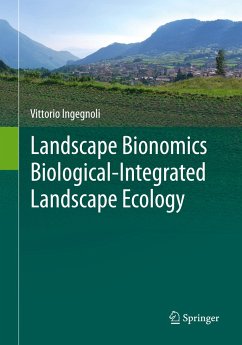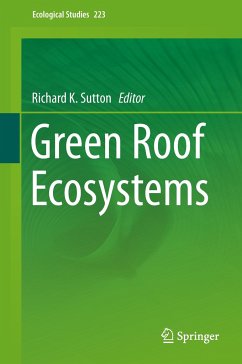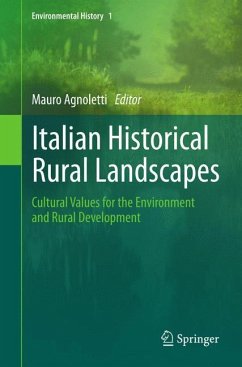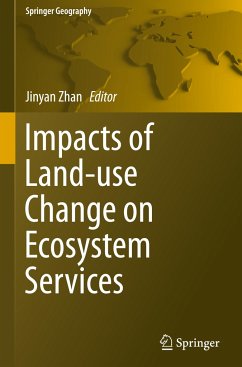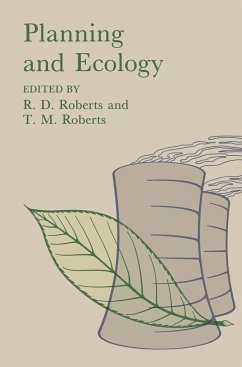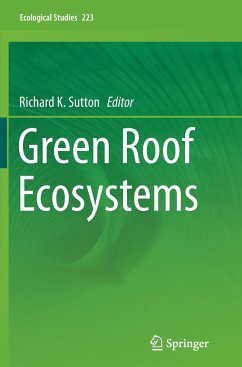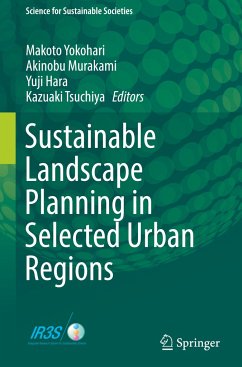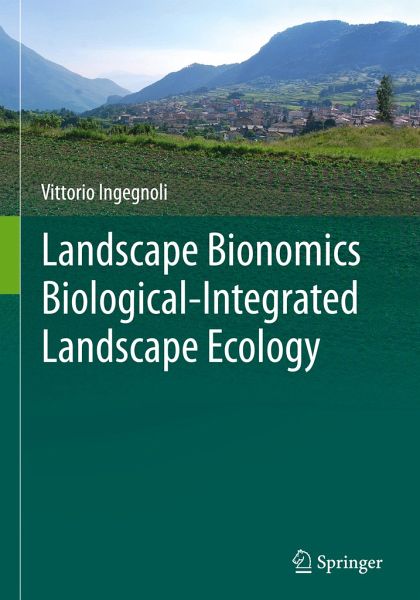
Landscape Bionomics Biological-Integrated Landscape Ecology
Versandkostenfrei!
Versandfertig in 6-10 Tagen
115,99 €
inkl. MwSt.
Weitere Ausgaben:

PAYBACK Punkte
58 °P sammeln!
"Landscape Bionomics," or "Bio-integrated Landscape Ecology," radically transforms the main principles of traditional Landscape Ecology by recognizing the landscape as a living entity rather than merely the spatial distribution of species and communities on the territory, often analysed in separate themes (water, species, pollution, etc.). To be more exact, the landscape is identified as the "life organization integrating a set of plants, animals and human communities and its system of natural, semi-natural, and human cultural ecosystems in a certain spatial configuration." This new perspectiv...
"Landscape Bionomics," or "Bio-integrated Landscape Ecology," radically transforms the main principles of traditional Landscape Ecology by recognizing the landscape as a living entity rather than merely the spatial distribution of species and communities on the territory, often analysed in separate themes (water, species, pollution, etc.). To be more exact, the landscape is identified as the "life organization integrating a set of plants, animals and human communities and its system of natural, semi-natural, and human cultural ecosystems in a certain spatial configuration." This new perspective inevitably leads to significant changes in how to assess and manage the environment.
This book represents the culmination of an endeavor begun by the author, with the support of Richard Forman and Zev Naveh, more than a dozen years ago. It builds on the author's previous successful publication, Landscape Ecology, A Widening Foundation, by addressing a range of additional topics and discussing the new theoretical and methodological concepts that have emerged during the past decade of research. Particular attention is paid to the fact that interventions in the landscape can be made with the best intentions yet cause serious damage! Against this background, the author explains the need to study "landscape units" by applying methods comparable to those used in clinical diagnosis - hence ecologists can be viewed as the "physicians" of ecological systems.
This book represents the culmination of an endeavor begun by the author, with the support of Richard Forman and Zev Naveh, more than a dozen years ago. It builds on the author's previous successful publication, Landscape Ecology, A Widening Foundation, by addressing a range of additional topics and discussing the new theoretical and methodological concepts that have emerged during the past decade of research. Particular attention is paid to the fact that interventions in the landscape can be made with the best intentions yet cause serious damage! Against this background, the author explains the need to study "landscape units" by applying methods comparable to those used in clinical diagnosis - hence ecologists can be viewed as the "physicians" of ecological systems.




